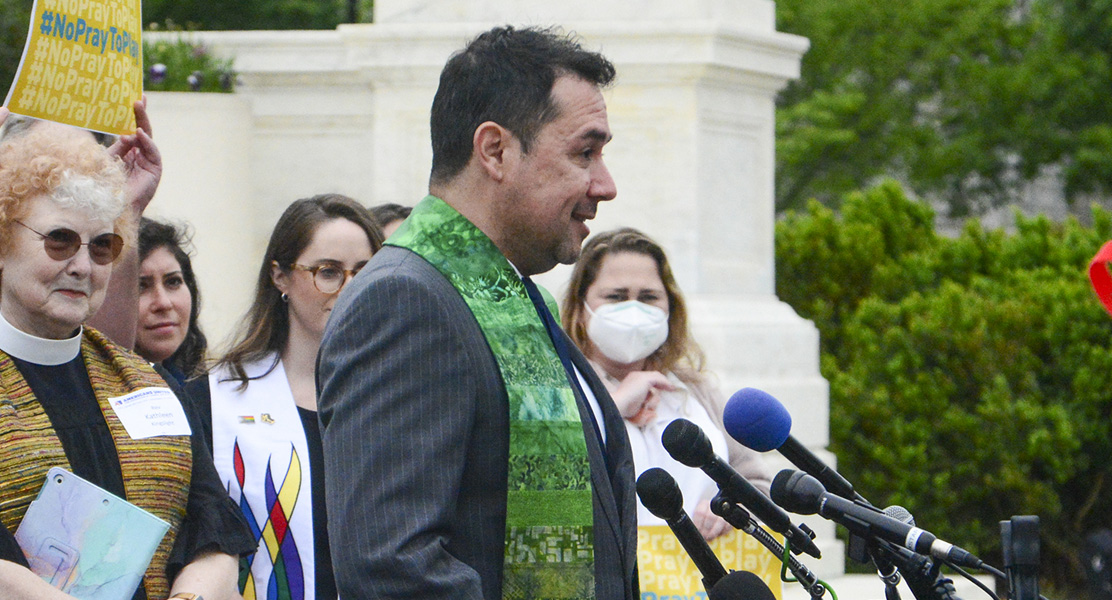A conversation with Rev. Doug Avilesbernal
We asked him to share about his passion and his experiences in the community where the Kennedy v. Bremerton case originated.

Serving as the executive minister of the Evergreen Association of Baptist Churches — headquartered in Washington state — the Rev. Doug Avilesbernal knows the Supreme Court case of Kennedy v. Bremerton as a local issue in his community. On the day of the arguments, he came to Washington, D.C., to speak out in front of the Supreme Court for historic Baptist principles of religious freedom for all.
This was published before the Supreme Court’s decision in the case. Read the latest at BJConline.org/Bremerton.
How does your Baptist faith inspire you to defend faith freedom for all?
Baptists have always been active non-conformists. The constant at the core of our discontent has nearly always been institutionalizing any particular understanding of faith at the expense of our God-given diversity. Therefore, as a Baptist Christian, my faith is nurtured and colored by abundant examples of faithful Christians who chose to sacrifice power and safety for the sake of those the current culture pushes to the outskirts and strips of power. I find my faith home comfortably within the Baptist movement because of its understanding of Jesus’ ever-present call to limit oppressive power.
How are clergy and people of faith in the Bremerton area responding to the case?
Sadly, this took place so long ago that people in Bremerton thought it was a settled matter. There is very little discontent with the lower courts’ rulings in favor of the school district. Nearly everyone making noise in favor of Coach Kennedy is from outside of Bremerton.
Are you surprised that a situation from your local community is getting such intense national attention?
The biggest surprise for me is that we were all under the understanding that this matter had been settled years ago. So it is difficult to see people arguing about something when those most affected by it have agreed with how it was settled.
Why did you feel compelled to fly across the country to speak out at the U.S. Supreme Court?
The reason we Baptists have been able to thrive here is that non-Baptists with power made space for us by keeping our government and civic spaces free for all with the Establishment Clause and Free Exercise Clause. So I traveled to speak out and encourage the Court to uphold that which prior justices, on whose shoulders they stand, knew to be a necessary component of our freedom appropriately enshrined in our Constitution. Every time a particular faith is favored, we know that oppression is never far behind. I will therefore defend the right to private prayer for all — whatever our faith might be — especially when it seems like my side might be allowed to enforce our way on others. Let us not sully the sacredness of prayer by reducing it to just another tool of our very human culture wars.
While we don’t know which way the U.S. Supreme Court will decide, we know all of our readers can take action to support faith freedom for all in their own communities. What kinds of actions would you suggest?
Reaching out beyond our cultural, thought and faith borders is annoying, difficult and often hurtful. But it’s also essential in this conversation.
Aware of that truth, then I think a good way to begin might be to intentionally think about how “I” am engaging with those who think differently than me. The Hobbesian understanding that every time we engage with the truly “other” we are also engaging in a power struggle does not work in a diverse environment.




